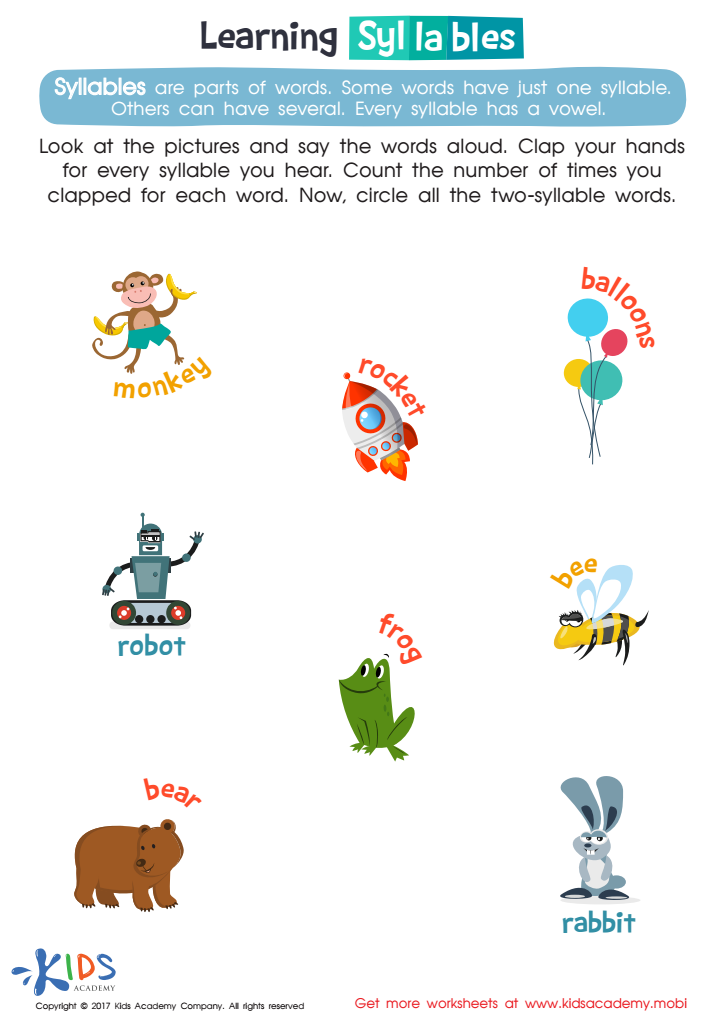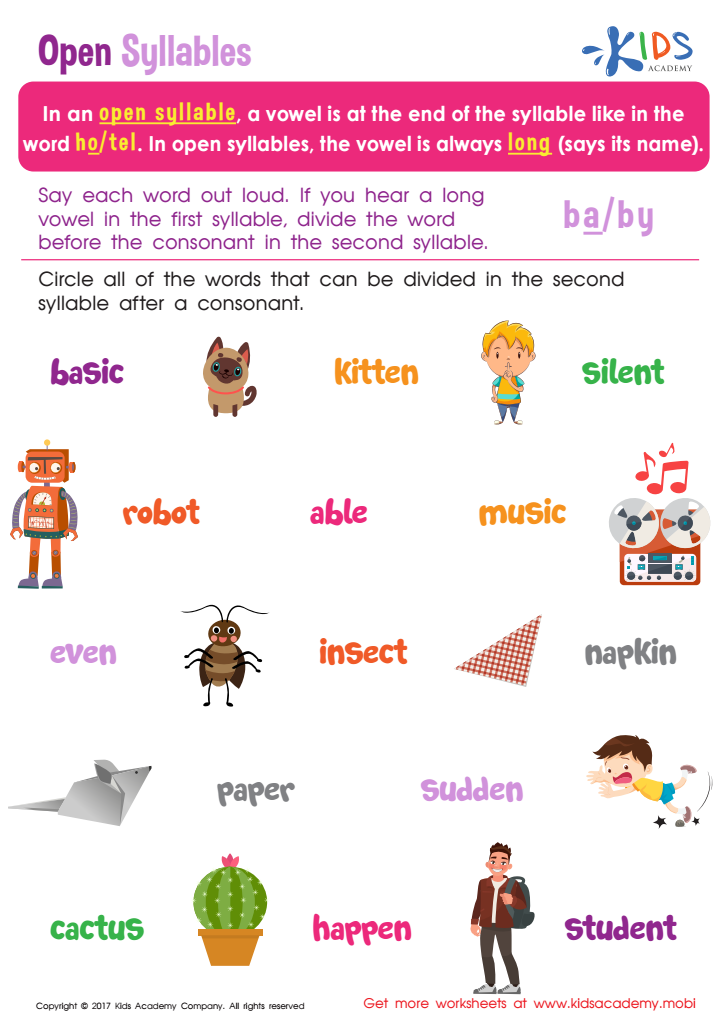Reading Improvement Writing Worksheets for Ages 3-9
4 filtered results
-
From - To
Boost your child's literacy with our Reading Improvement Writing Worksheets tailored for ages 3-9. These engaging and educational printables are designed to enhance reading comprehension, expand vocabulary, and develop writing skills through fun activities. Each worksheet focuses on fundamental aspects such as letter recognition, sentence formation, and story sequencing, ensuring a comprehensive learning experience. Perfect for both classroom use and at-home practice, our worksheets support young learners in building a strong foundation in reading and writing. Help your child achieve reading success and foster a lifelong love for learning with these expertly crafted resources.


Reading: Words With Suffixes Worksheet


Breaking Apart Words Worksheet


Learning Syllables Word Structure Worksheet


Open Syllable Printable Worksheet
Parents and teachers should prioritize reading improvement and writing for children aged 3-9 because these formative years are critical for cognitive and language development. Early mastery of reading skills establishes a foundation for academic success, enabling children to understand and engage with various subjects more effectively. During this period, children's brains are highly receptive to acquiring new languages and skills, making it an ideal time to foster literacy.
Reading offers numerous benefits; it enhances vocabulary, improves focus, and stimulates imagination and creativity. When children read books, they absorb sentence structures, grammar, and diverse content, enriching their knowledge base and cultural awareness. This early exposure prepares them for advanced literacy and comprehension tasks that become essential in later grades.
Writing, on the other hand, reinforces reading skills and allows children to express their thoughts, feelings, and ideas clearly. It cultivates critical thinking and problem-solving skills while promoting fine motor development through the act of writing. Moreover, writing activities, like storytelling and journaling, can boost a child's confidence and communication abilities.
Overall, a strong emphasis on reading and writing in early childhood equips children with the essential tools needed for academic progression, personal growth, and lifelong learning. Ignoring these vital skills during this developmental window can result in enduring educational gaps.
 Assign to My Students
Assign to My Students





















